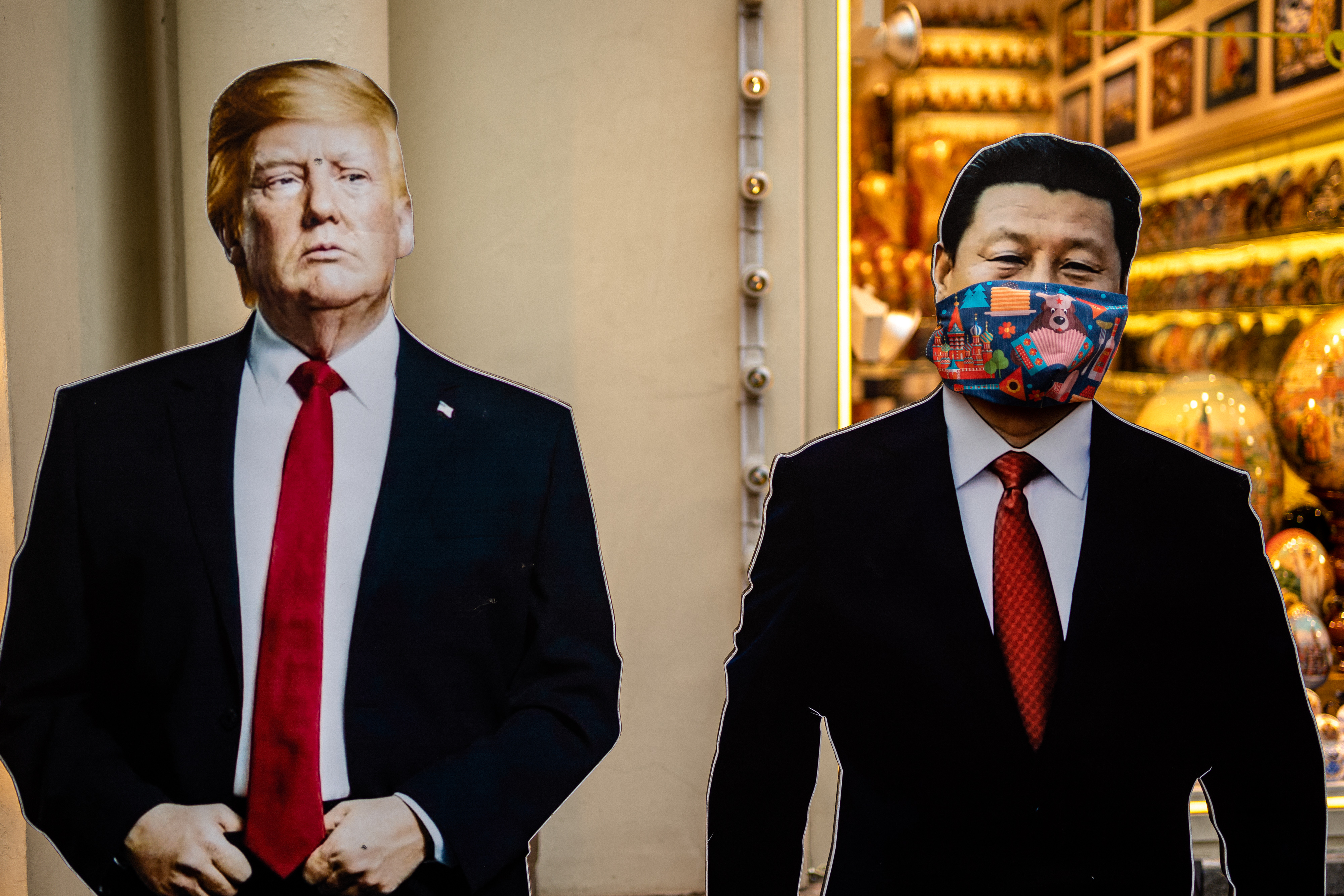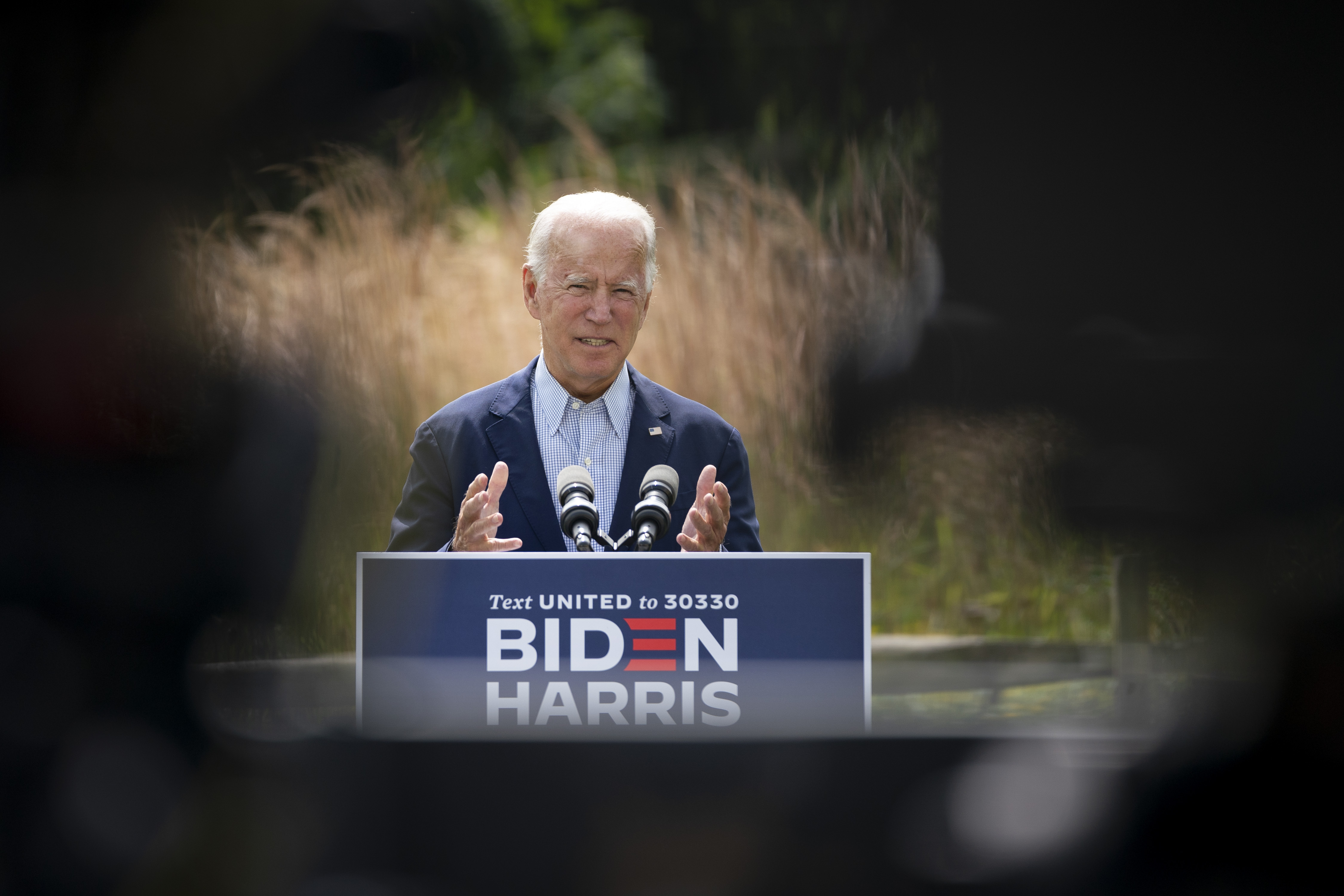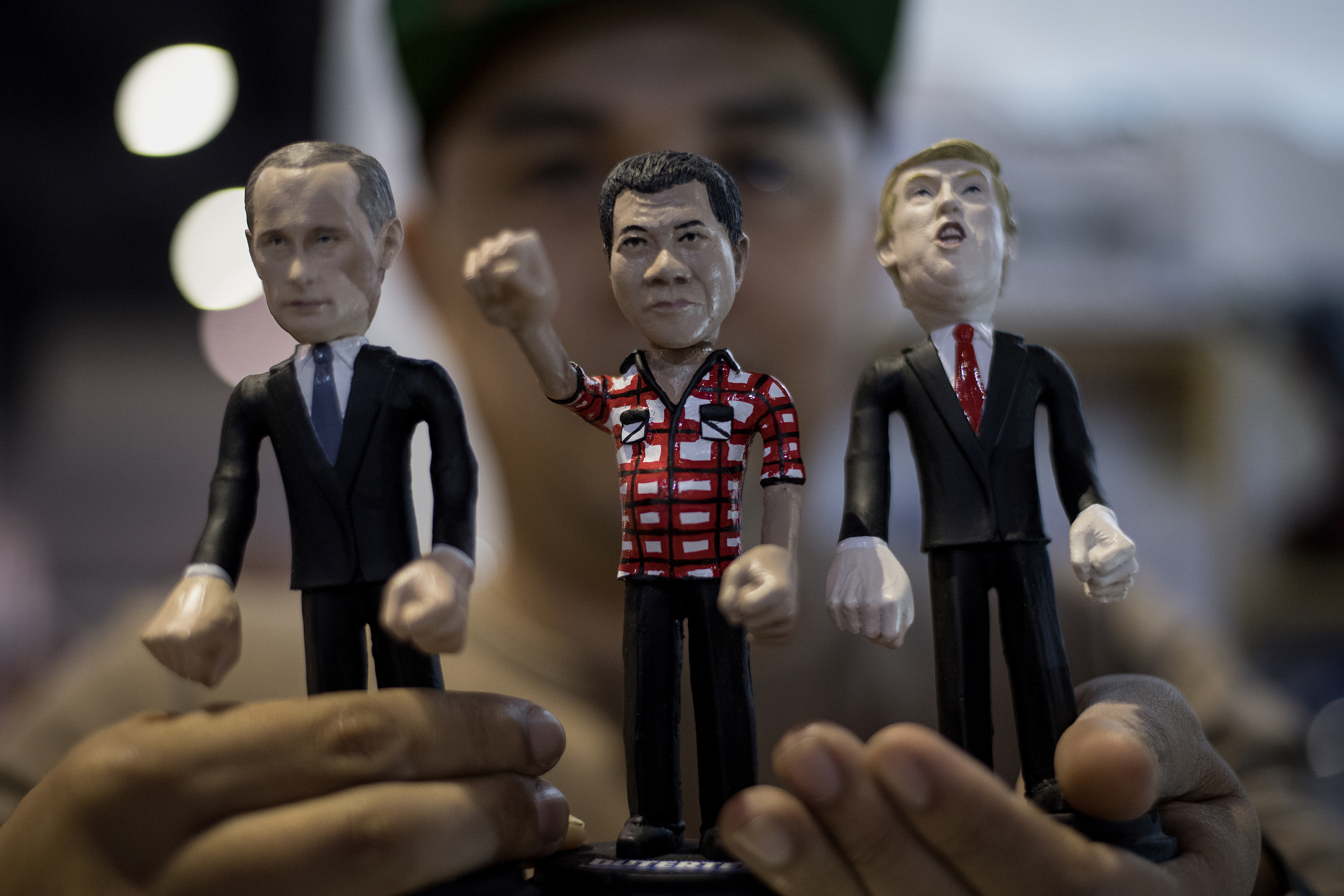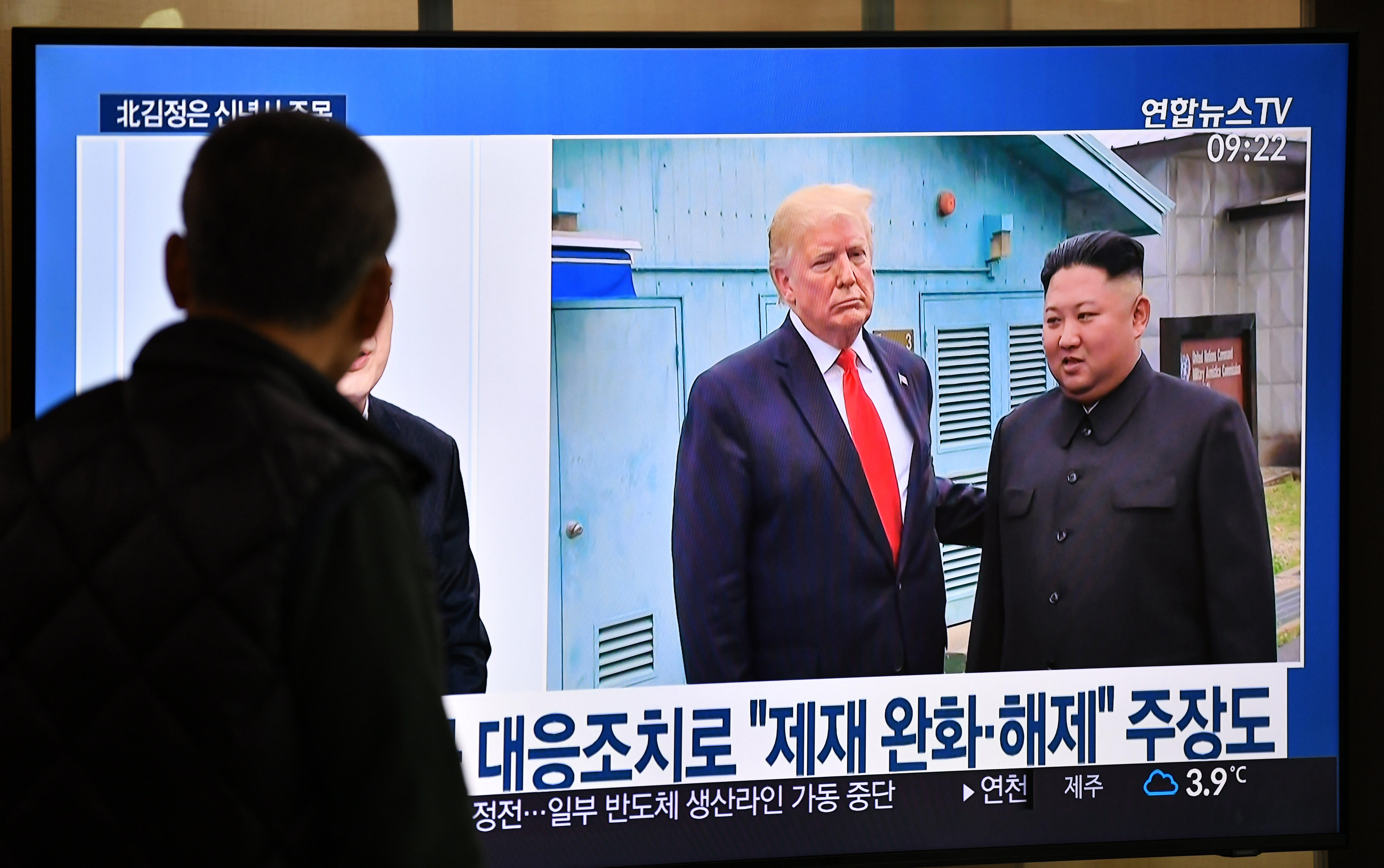Trump or Biden? We Ask Experts Who Would Be Better for Asia-Pacific
November 3, 2020As the United States prepares for its presidential elections, the rest of the world waits to see whether Americans decide to give President Donald Trump another four years in office, or elect Democratic nominee and former vice president Joe Biden.
Why exactly do the elections in the United States matter to the rest of the world? How crucial are the results to countries across the globe amid the pandemic? What issues and policies overseas will the polls impact?
We look at Asia-Pacific and speak to experts, who explain why the elections matter for those outside the United States, and which candidate would be more beneficial to this part of the world.
China
Bob Guterma is the COO of SupChina, a New York-based, China-focused digital media company; Kaiser Kuo is the podcast host of SupChina.
Why are the U.S. elections important for China?
Guterma: For a sitting U.S. president to openly and aggressively undermine the veracity of the U.S. elections and threaten to refuse to accept the outcome is an epic generational victory for every authoritarian communist leader from Mao Zedong and Josef Stalin through to Xi Jinping and Vladimir Putin.
On top of that, America's perennially dysfunctional Congress and increasingly violently polarized populace cumulatively serve the purpose of proving correct the Chinese Community Party (CCP) view that their system is superior for long-term stability, growth, and improvement of individual livelihoods. Who wants to be like America now? Fortunately for the CCP, probably less people than ever before.
How will the polls impact China?
Guterma: While prior U.S. elections could be forecast to impact China by plus or minus a few points of long-term relative gain in global power, this year, the elections, if they suffer a crisis of legitimacy, could allow China to close the relative power gap more than they could've dreamed of even a few years ago, and not just on economic terms but on cultural and ideological terms, too.
If you consider America and China as competing 'companies' seeking to export their systems to buyers in other markets, China's sales pitch is getting easier by the day.
It's important to remember that while Western nations think that the ideological struggle between capitalism and communism ended conclusively in 1989, in China the ideological competition never ended, and they are putting more points on the board than ever before.
That's all from the Party viewpoint. On a social basis, America has enjoyed soft power status in China on par with America's soft power status in most other countries around the world.

Finally, America has always been the lead supporting role in the CCP's propaganda narrative about China's relationship with the world. America has played the protagonist and antagonist by turns based on the prevailing trend in U.S.-China relations, but with America so firmly enmeshed in the long-running narrative of China's modern history, America is a character that cannot simply die and be phased out of the show.
Which U.S. president will be more beneficial to China?
Kuo: For better or for worse, the country that has mattered most for China for the entirety of the last 50 years has been the United States. American policy toward China is given outsize importance – and much of the time, that ascription is probably entirely warranted. American policy is a major determinant of not only China's foreign policy but also its domestic policy: Beijing behaves very differently at those times when it feels itself to be in the American crosshairs, and Beijing isn't wrong to think that overall American posture toward China is determined, in large part, by the occupant of the Oval Office.
The odd thing this year is that it's by no means clear which candidate would end up ultimately being better for China: the incumbent, who if re-elected will continue to do reputation damage to the U.S. internationally, undermining American moral authority and miring the U.S. in internecine partisan strife that will effectively paralyze it until he's no longer in office'; or the Democratic challenger, who will probably restore a semblance of normalcy, diplomacy, and predictability to the relationship. China stands to gain and lose from both outcomes.
Hong Kong
Which bodes better in the case of Hong Kong: A Trump or a Biden win?
Kuo: The Trump administration completely ignored a deteriorating situation in Hong Kong and failed to use diplomatic tools to try to broker some kind of a compromise. Instead, it endorsed and eventually signed a
piece of legislation – the Hong Kong Human Rights and Democracy Act – which does nothing but punish the people of Hong Kong and inflict even more damage on a Hong Kong economy already reeling from not only the year-long upheaval but also from the global pandemic-induced downturn.
Hong Kong will be far better off if a Biden administration can lower the temperature with Beijing and use the right diplomatic combination of carrots and sticks to get Beijing at the very least to be highly selective in its enforcement of the National Security Law.
India
Dhruva Jaishankar is the Director of the US Initiative at Observer Research Foundation (ORF), New Delhi
Why are the U.S. elections important for India?
Jaishankar: The United States is today India's single most important external relationship. Whether on international economics, security and defence, education, healthcare, technology, or diaspora relations, how the United States evolves and behaves will have important implications for India's own development and security. For this reason it is only natural that Indians are interested in the outcome of this hotly contested contest.
How will the polls impact India directly?
The direct outcome for India will be marginal, in that both parties and leaderships have promised to improve relations with New Delhi. However, U.S. policy on China, trade, immigration, Russia, climate change, Iran, democracy, or Afghanistan will be affected by the results not just of the
presidential election but the Congressional elections as well. These in turn will have significant effects for India, some more positive and some more challenging.
Which president will be more beneficial to India?
I don't think there is a strong preference from an Indian standpoint. On some issues, such as defence, security, energy, and technology, the Trump administration has been beneficial to Indian interests, and also somewhat accommodating of Indian interests, as in Iran and Afghanistan. But on many other issues, particularly bilateral relations such as trade, immigration, and climate change, a potential Biden administration will likely be more cooperative.
Australia
Professor Gordon Flake is the founding Chief Executive Officer of the Perth USAsia Centre at The University of Western Australia.
Why are the U.S. elections important for Australia?
Flake: What the U.S. does, not only impacts our bilateral relationship, but as we’ve seen the last four years with Trump's decisions, it affects the world and thus affects Australia. Also it's important to Australia's national security strategy. How we defend our own country is tied in with our alliance with the United States. Also, the U.S. is the number one investor in Australia; China is our second most important economic partner.
How will it impact Australia directly?
On a fundamental level, the biggest issue for Australia is the strength of America. Thanks to mistakes made in the White House, the country is economically struggling which impacts the U.S. budget, the military budget, and its market for our goods—and therefore its ability to invest in our economy. In general, for Australia's interests, a strong America is good, while a weak America is bad.
What are the most critical issues that will be affected?
One thing that's going to be quite different is climate change. We've seen conservative commentators in Australia expressing concern about the potential of a Biden victory because that would knock Australia a bit out of sync with the U.S.
Our current government in Canberra isn't treating climate change as seriously as the rising generations in Australia and the world would want them to. But Biden would clearly bring the U.S. back into sync with the Paris Accords and the more progressive side of Australian politics. No questions about that.

Which president will be more beneficial to Australia?
Because Australia relies not just on an alliance partnership with the U.S., but also that international liberal post WW2 order—that Australia calls a rule-based order—I think clearly the Biden administration. Number one just helping the U.S. get back on top of COVID, but also to restore its economy and restore its standing in the world will all be tremendously beneficial to Australia. So I personally believe a Biden victory will be better overall for Australia.
Japan
Koichi Nakano is a political science professor and dean at Tokyo’s Sophia University, Faculty of Liberal Arts
Why are the U.S. elections important for Japan?
Nakano: The U.S. is by far the most important country for Japan so the result will affect Japan’s economic as well as foreign and security policy. The general public in Japan have divided opinion on the candidates. Many are disgusted with Trump, while others think that he would be better for the Japanese economy.
How will a Trump win affect Japan?
For the conservatives who govern Japan, Trump is the devil they know. He may not be ideal, but the conservatives have largely adjusted their policies
to his whims and interests so they generally prefer him to Biden because they don’t expect that many surprises from Trump anymore.
On that note, do they prefer Biden?
No. The Japanese conservatives prefer Trump to Biden. The Japanese conservative political leaders have always preferred Republicans to the Democrats as the former favor big business interest over human rights or social justice issues. They also fear that Biden will be softer on China.
Overall, which president will be more beneficial to Japan?
I personally think Biden will be better for Japan and for the world. For good or bad, his policy on China won’t be that different from Trump’s in the end. Trump has been undermining the international liberal order that has served Japan so well for decades.
Another four years of Trump will have devastating consequences.
Singapore
Eugene Tan is a politics expert and law professor from the Singapore Management University (SMU)
Why are the U.S. elections important for Singapore?
Tan: President Trump, if he secures a second term, might rattle the cage even more when it comes to security issues in the region, especially the South China Sea. The U.S.-Sino rivalry might ratchet up a few notches. Singapore will seek to offer counsel on the geopolitics if approached.
Southeast Asia might become a venue of this contest between both countries. In terms of form, under a Trump presidency, there will be even more rhetorical flourish but concerns over American reliability in promoting stability in the region will likely grow.
Will a Biden win be better for Southeast Asia?
A Biden win has greater potential of being a good thing for regional stability and alliance building. We might see American leadership being re-asserted in global matters such as trade (TPP), climate change (Paris Accord), global health (WHO), and security (NATO).
But we must also not get ahead of ourselves as a Biden win does not mean the end of Trumpism – understood as the U.S.’ sharp turn inwards, leader of global alliances, and the backlash against globalism – all of them the creation of the American-led global order from the ashes of the Second World War.
Malaysia
Bridget Welsh is a political scientist and Malaysia-based research associate from the University of Nottingham.
How will a Trump win affect Malaysia?
Welsh: A Trump win will cement the end of U.S. power in Southeast Asia. It will give a green light for further human rights abuses in the region and undercut normative and international institutions needed to address the global challenges ahead, such as climate change.
For Malaysia, already in the China orbit, (a Trump win means) China's presence will deepen further. This will seriously undercut all U.S. businesses in the region, from digital technology to the service sector.
Which president will be more beneficial to Southeast Asia?
BW: Biden. Southeast Asia needs to be seen in its own rights (not through the lens of China), international norms of governance need to be strengthened, the pandemic needs better U.S. leadership and there needs to be greater focus on an economic recovery. These cannot happen under Trump. Democracy needs to restore itself through the ballot box and the acceptance of these results.
What are the most crucial issues in that will be affected by the result of the U.S. elections?
Trade, recovery of the global economy and pandemic management, relationships with both the U.S. and China, as well as navigation of the sea lanes and the South China Sea.
Philippines
Dindo Manhit is a professor and the president of Stratbase ADR Institute.
Why are the U.S. elections important for the Philippines?
Manhit: The U.S. elections have a bearing for the region considering the global position of the United States. Specifically, the new U.S. administration's Indo-Pacific foreign policy will impact the Philippines. The extent of their economic presence, diplomatic engagement and defense policy will have an impact in the region. Specifically, for the South China Sea, U.S. still leads as the top military power in the world so its defense alliances and partnerships in the region are crucial to balance out China's increasing military power.

Which president will be more beneficial to the Philippines?
There are pros and cons for both. The hardline policy of Trump against China exposed the capabilities of China. However, due to Trump's unpopular domestic policies, it has affected the image of the U.S.' capability to some degree. The pro in a Trump president would be the Philippines looking towards regional allies and partners to strengthen defense posture and multilateral/unilateral/bilateral relations.
In a Biden presidency, we can expect a foreign policy that has a special focus on reinvigorating democracy. What would be beneficial to the Philippines, particularly, is his concept of a renewed alliance of like-minded democracies. A more active and collaborative approach in U.S.' Indo-Pacific policy would further reinforce the growing mini-lateral cooperation in the region.
Thailand
Dr. Thitinan Pongsudhirak, Professor and Director, The Institute of Security and International Studies, Chulalongkorn University
Why are the US elections important? How will it impact Thailand?
Pongsudhirak: The U.S. elections are important for the world because the U.S. is the chief architect of the rules-based liberal international order. Yet the U.S. is pulling back from its role and responsibilities as a superpower that constructed and underwrote the international system. That's why geopolitical tensions have mounted and pervaded international affairs.
For Thailand, it will matter if Trump or Biden comes out on top because there will be qualitative differences in policy posture and approach.
A Trump second term would see more of the same. U.S.-Thai relations would be driven by interests over values. Trump hosted Thai coup leader [Prayut Chan-O-Cha] at the White House in October 2017, and has since appointed a U.S. envoy in Bangkok who is focused on commercial interests much more than rights, freedoms, and democratization away from authoritarianism.
A Biden win would see more professionalism and recalibration between interests and values. A Biden administration would be reminiscent of the Obama years where human rights and democracy were given more weight and role in policymaking. The State Department apparatus would play a bigger role.
A Trump win would be a boon for Thai foreign policy aims of balancing between the U.S. and China because the incumbent president will likely push back hard against Beijing, providing leverage to regional states in ASEAN. But a Trump victory would not be supportive of pro-democracy forces in Thailand.
A Biden White House will be tested by China. If Biden is weak on China like Obama, then we will see China's growing hegemony in Asia. But a Biden victory would be more favorable towards pro-democracy forces in Thailand.
Indonesia
Teuku Rezasyah is an International Relations lecturer at Universitas Padjajaran
Why are the U.S. elections important for Indonesia?
In accordance with a statement from Secretary of State [Mike] Pompeo, we share democracy, we share multiculturalism, we respect international law, and we put our people first when it comes to development. So I think we share similar ideas to the U.S.,
Which president will be more beneficial to Indonesia?
It depends on the issues… For the strategic planners who are considering the strengthening of Indonesia’s outer islands, the immediate crisis from the South China Sea, or the immediate challenge in the Indonesian EEZ (exclusive economic zone), the continuation of Donald Trump’s leadership is welcomed. But for those who prioritize the importance of human rights, or democratization, they welcome Joe Biden. But technically, regardless of who the new president is, the U.S. government has been practicing an idea of bipartisanship, meaning regardless of who’s leading, the values remains – the difference is only on the level of strategy not on the level of long term objectives or long term goals in the bilateral relationship.
South Korea
Park Won-gon is a professor of International Studies at Handong Global University; Shin Yul, is a professor of Political Science and Diplomacy at Myongji University.

Why are the U.S. elections important for South Korea?
Park: South Korea can’t deny that the U.S. election is the most important after the Korean election. The two countries are allies and inextricably linked for their security and prosperity.
The most crucial issue is a policy in North Korea. This is because the two candidates have considerably different approaches to North Korea as you see from the presidential debates. Trump has adopted the top-down approach with North Korean leader Kim Jong Un, while Biden takes a more traditional approach that emphasizes a North Korea’s commitment.
North Korea prefers Trump’s approach for sure. The letters sent by Kim released in the famed journalist Bob Woodward’s book “Rage”, shows that the Supreme Leader wants to achieve what he wants via the relationship with Trump. In a Trump presidency, there’s a low possibility that the North would cross the red line, the testing of a nuclear weapon and a new intercontinental ballistic missile (ICBM), since Trump has made it clear to draw the red line. While in a Biden presidency, there’s a high possibility that the North will provoke the U.S. with the testing of ICBM around the inauguration to increase leverage with the new leader.
Overall, which president will be more beneficial to South Korea?
Shin: Biden. First of all, from the perspective of officials, the traditional candidate is at least predictable while Trump is not. Predictability does matter in international diplomacy. It is expected to be better for officials to decide on a policy [if Biden wins], while it hasn’t been not easy due to the uncertainties so far. When it comes to the Korea-Japan relations, Biden cares more about their alliances than Trump, so Biden is more likely to mediate the relations as Obama tried to do that. I expect that the relations
will be more likely to be improved [if Biden wins]. Finally, I think Trump’s policy in North Korea failed and just increased uncertainties since there has been no improvements after the two summits.
According to an October survey by the National Barometer Survey, South Koreans also prefer Biden. Forty-four percent of the respondents said that Biden will be more beneficial to South Korea, while only 14 percent thought Trump will be. What does this mean? It proves that South Koreans don’t set a high value on Trump’s policy in North Korea.
With reports from Gavin Butler, Heather Chen, Anthony Esguerra, Junhyup Kwon, Rosa Folia, and Pallavi Pundir.
